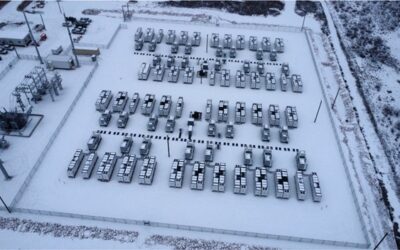
US utility company Dominion Energy has received approval for the building of four large-scale battery storage plants totalling 16MW of output in the Commonwealth of Virginia.
Virginia is undergoing a clean energy transformation and while some reports had pegged Dominion, a major utility player in the region as a reluctant participant in that movement, others have stated that the utility has not only accepted but moved proactivelly to embrace the transition once in motion and in law.
Dominion Energy Virginia this week received approval from the State Corporation Commission to go ahead with the battery storage projects, which the company said will help it understand the role energy storage can play on its networks.
While the more recent Virginia Clean Economy Act is only just getting started, Dominion said the pilot projects, investigating batteries and their role in smoothing out the intermittency of, and integrating, wind and solar energy, was enabled by Virginia’s earlier 2018 Grid Transformation and Security Act, which corporate trade body Advance Energy Economy neatly summarised in May 2019 on its own blog.
Try Premium for just $1
- Full premium access for the first month at only $1
- Converts to an annual rate after 30 days unless cancelled
- Cancel anytime during the trial period
Premium Benefits
- Expert industry analysis and interviews
- Digital access to PV Tech Power journal
- Exclusive event discounts
Or get the full Premium subscription right away
Or continue reading this article for free
The four battery systems will provide three different use cases: Two, adding up to 12MW between them, will be used to store solar energy, from the 17MW Scott Solar farm in Powahatan County. These two facilities will store surplus PV-generated power in times of high “production and release energy during periods when load is high or solar generation is low”, Dominion said in a release, while they will also assess the effectiveness of battery storage in optimising solar PV plant operation.
The other two projects will be 2MW each. One will assist the grid at a substation to assess whether, as in other parts of the world, storage can mitigate the need for expensive network upgrades to meet local demand patterns, while the other will be deployed at a 20MW solar farm to assess the efficacy of batteries in managing reverse power flows, which can impact local network voltage and loading issues.
The four facilities are expected to cost around US$33 million in total and are expected to be operational by the end of the first quarter of 2021, from when they will be assessed for a period of five years.





